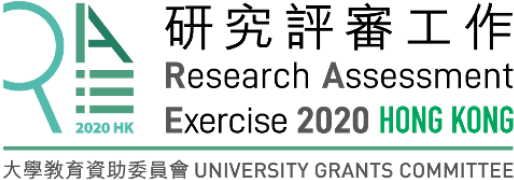Unit of Assessment:
Research categories:
?Social Sciences, General
Education & Educational Research (5)
Linguistics (2)
Area Studies (1)
Language & Linguistics (1)
Case Study
Instigating a paradigm shift in English Language education in Hong Kong
1. Summary of the impact
This case study presents the impact of three related government-funded projects, which are underpinned by the continuous research work of the Department, conducted during 2010-2018. The projects bring about changes in the government’s English Language education policy as well as innovations in curriculum and pedagogies in the English classroom. The policy impacts are evidenced by the Education Bureau’s initiatives in English Language education consultancy projects while impacts on pedagogical practices are revealed in the feedback of beneficiaries (schools, teachers and students). The impacts together instigate a very significant and far-reaching paradigm shift in English Language education.
2. Underpinning research
This case study is underpinned by the research work of Dr. Anita Poon and Prof. Sandy Li on English Language education and information technology applications. Their work provides knowledge, insights, methodologies, and inventions offering solutions to existing issues of English Language teaching. This pool of underpinning research supported a series of three government-commissioned research projects (Projects 1, 2 and 3) on instigating changes in English Language education policy and pedagogies designed and implemented by their team. Research 1 - 3 provided a key to understanding the English Language education scene in Hong Kong and the rationale for a reform in English curriculum. Research 2, 5, and 6 provided the theoretical underpinning for devising and implementing new pedagogies for Projects 2 and 3.
Project 1 evaluated implementation of the English curriculum reform. The evaluation drew from knowledge and insights from Research 4 about why and how decision-making in curriculum was made in order to have a full picture of the new curriculum. Research 4 argues that a traditional top-down rational model was employed for the curriculum reform, and that the consultation exercise was “not conducted at the initial stage of setting directions …, but rather at the final stage of soliciting feedback on the draft proposal … If there are changes to be made, they are only changes concerning some implementation details” (p. 587). Research 4 also accounts for some findings in Project 1 (e.g. the new curriculum failing to address learner diversity and catering for students’ self-directed learning ability because some stakeholders’ views were not considered in the decision-making process). The outcomes of Project 1 led to the government’s initiatives in funding Projects 2 and 3 that addressed the curriculum gap and devised innovative pedagogies using information technology.
The initiatives of Projects 2 and 3 were framed by Research 5 which provides a framework for understanding the contributing factors for effective implementation of curriculum innovations. Its findings argue that changing teachers’ epistemological beliefs about the use of technology may not necessarily bring about change in their practice; instead, implementation of curriculum innovations is often affected by instrumental forces including support for risk taking.
Project 2, underpinned by the knowledge and insights of Research 1 and 5, examined the application of a new pedagogy - e-learning - to the English curriculum. Research 1 identifies economic, political and social trends which brought about changes in language education curricula in Hong Kong. These trends included technological advancement to changes in English Language pedagogies. Research 5 provides research support for implementation of one-to-one technology at the classroom level. The design of e-learning packages in Project 2 was supported by the methodology of Integrative-Narrative Method as advocated by Poon in Research 2. Its emphases on integrated skills, interactivity and creativity are epitome of innovative English Language education practices.
Project 3 undertaken by the same team explored the feasibility of implementing a Student Adaptive Learning System for English Language Education. Research 6 provided the empirical basis and insights into designing these SAL and analytical tools.
3. References to the research
Research 1 Poon, A. Y. K. (2019). Language education policy in Hong Kong. In A. Kirkpatrick & T. Liddicoat (Eds.), Routledge Handbook on Language Education Policy in Asia (pp. 60-75). Oxon, U.K.: Routledge.
Research 2 Poon, A. Y. K. (2011). Integrative-narrative method: The role of narratives, integrated skills and cognitive strategies in the teaching of English listening in Hong Kong. The Asia-Pacific Education Researcher, 11(3), 477-488.
Research 3 Poon, A. Y. K. (2010). Language use, and language policy and planning in Hong Kong. Current Issues in Language Planning, 11(1), 1-66.
Research 4 Poon, A. Y. K. (2008). Decision making in English language curriculum in Hong Kong. In K.W. Chu, S.P. Cheung, L.Y. Lai, & K.H. Fung (Eds.), Curriculum decision (pp. 581-589). Hong Kong: Faculty of Education, Chinese University of Hong Kong.
Research 5 Li, S.C. (2010). Social capital, empowerment and educational change: A scenario of permeation of one-to-one technology in school. Journal of Computer Assisted Learning, 26 (4), 284-295.
Research 6 Li, S. C., Pow, J. W., & Cheung, W. C. (2015). A delineation of the cognitive processes manifested in a social annotation environment. Journal of Computer Assisted Learning, 31 (1), 1-13.
4. Details of the impact
The impact of Dr. Anita Poon and Prof. Sandy Li’s continuous research manifests through the implementation of three related government-funded competitive-bid projects, which were completed in 2012, 2016 and 2018 respectively. Project 1 evaluated the effectiveness of implementation of Hong Kong’s English curriculum reform. Project 2 examined how e-learning was applied to English reading and writing. Project 3 investigated the feasibility of designing a Student Adaptive Learning System, a more advanced e-learning tool to enhance students’ self-directed learning, for English reading.
Project 1 is the cornerstone of the impact case, as its recommendations to provide self-access resources for schools led to the Education Bureau’s (EDB) initiatives in providing funding for Projects 2 and 3. Project 2 entails the construction of an e-platform and e-assessment packages. The e-platform provides instantaneous annotations for students, professional support for teachers, online marking, analysis of students’ performance, etc. In Project 3, a knowledge structure for reading was developed, based on which a SAL system, an e-learning system that automatically generates a personalized learning path and customize learning contents to individual learners, could be created.
Together the three projects have a very significant impact on English Language education in three ways: (1) policy change; (2) curriculum change; (3) pedagogical practices. The policy impacts are evidenced by the government’s English education initiatives while impacts on curriculum and pedagogical practices are revealed by the feedback of beneficiaries (schools, teachers and students) collected through surveys and interviews.
Policy change
Project 1 saw its impact on the government’s English education policy by instigating a paradigm shift through recommending the application of e-learning to English education. The subsequent policy change involves the EDB’s implementation of two support schemes “WiFi-100” and “WiFi-900” territory-wide in 2014 and 2017 to upgrade schools’ WiFi infrastructure for facilitating e-learning (Source 1). Another evidence is the EDB’s initiatives in building online assessment resources in reading and writing (Project 2) in 2015 (Source 2), on developing knowledge structure of reading skills for SAL (Project 3) in 2017 (Source 3) and on constructing assessment tasks for SAL (Source 4). The EDB’s ultimate aim is to construct a SAL platform for all schools in Hong Kong in the next two years. Meanwhile, the e-assessment packages produced in Project 2 are uploaded on the websites of the EDB and the Department of Education Studies in order to reach more beneficiaries (Sources 5-6).
Changes in curriculum and pedagogical practices
The impact on curriculum change and practices is evidenced through implementing Project 2’s e-platform and e-packages in schools. This e-platform and e-packages resolve curriculum and practices issues in traditional classrooms of treating teaching and assessment as separate tasks as well as time constraints for addressing in-depth learning and diverse learning needs. Reading and writing are integrated in the design of e-packages underpinned by Task-Based Language Learning. The integration of teaching and assessment is made possible through the Learning-Teaching-Assessment framework of e-packages, and the functions of teacher online marking and instantaneous feedback to students provided by the e-platform. The new pedagogy – e-learning – allows students to work at their own pace, thus helping them to become self-directed learners.
Upon completion of Project 2, the team carried out an in-depth study on the implementation of the e-packages in a school during 2017-18. The survey and interview results show that students became more motivated and the teacher had more awareness of assessment literacy and new pedagogies (Source 9). The impact of Project 2 was further evidenced through a series of training seminars and workshops for teachers from different schools during 2017-2019. The largest one held in March 2019 was attended by teachers from 39 schools (Source 7). Survey results show that participants found the e-packages interactive and interesting, and the e-platform effective in promoting students’ self-directed learning (Source 8). Subsequent to the March 2019 seminar, the e-packages were implemented in three schools. Feedback indicates that (1) more than 80% of students found the e-assessment tasks motivating, and their self-learning ability enhanced through annotations; (2) teachers had more understanding of assessment literacy and new pedagogies, and more awareness of using the e-platform to address learner diversity (Source 9). In addition, the testimonials of the principals and teachers (Source 10) provide further evidences to demonstrate the significance of the impact case.
In sum, the impact case has a very significant and far-reaching impact on Hong Kong’s English Language education. The impact is sustainable when more schools use our e-platform (Study 2) and when the EDB’s development of SAL for school use territory-wide is in place.
5. Sources to corroborate the impact
- Website of The Education Bureau of Hong Kong’s subsequent education policies on upgrading the WiFi infrastructure of schools – WiFi 100 (https://www.edb.gov.hk/en/edu-system/primary-secondary/applicable-to-primary-secondary/it-in-edu/supportscheme/faq.html) and WiFi 900 (https://www.edb.gov.hk/en/edu-system/primary-secondary/applicable-to-primary-secondary/it-in-edu/WiFi900/whatsnew.html)
- The Education Bureau of Hong Kong’s quotation document on e-learning in English reading and writing (issued on 8 September 2015)
- The Education Bureau of Hong Kong’s quotation document on the pilot study on Student Adaptive Learning in Key Stage 1 English reading (issued on 14 September 2017)
- The Education Bureau of Hong Kong’s quotation document on the study on Student Adaptive Learning System in Key Stages 1 and 2 English reading (issued on 12 March 2019)
- The Education Bureau of Hong Kong’s testimonial on uploading the e-packages on Web-based Learning and Teaching Support for school use territory-wide (https://wlts.edb.hkedcity.net/en/english/ks1/reading/weather-and-seasons.html)
- Website of The Education Bureau of Hong Kong’s Web-based Learning and Teaching Support (https://wlts.edb.hkedcity.net/filemanager/file/english/research_report/Final_report_on_the_Research_Project.pdf), on which the e-packages were uploaded (https://wlts.edb.hkedcity.net/en/english/ks2/reading/study-tour-to-australia.html); website of the Department of Education Studies (https://educelt.hkbu.edu.hk/moodle/), which shows the hyperlink to the e-platform and e-packages on e-learning in English reading and writing
- Poster and photos of the seminar and workshop on e-learning held in March 2019
- (redacted)
- (redacted)
- Testimonials of beneficiaries on the e-learning platform and e-packages (A.D. & F.D. of Pok Oi Hospital Mrs. Cheng Yam On School, 10 September 2018 and Pui Kiu Primary School, 10 July 2019)

